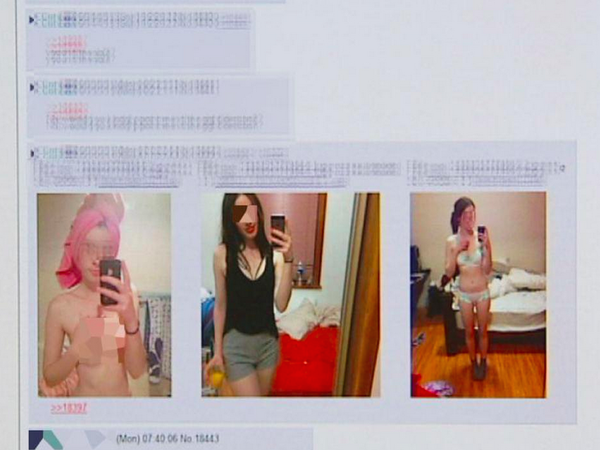Revenge porn is the non-consensual online distribution of sexually explicit content.
Social media and other digital platforms have allowed perpetrators to distribute this content, which is typically targeted at an ex-lover, with ease.
However, holding people accountable is not as simple.
The majority of Australian states and territories currently have no legislation relating to revenge porn.
Only Victoria and South Australia have laws that restrict distributing this malicious content.
Labor MPs, Terri Butler and Tim Watts, proposed a federal private bill on 3 September.
The bill aims to make it easier for victims to report offenders.
Labor MPs @terrimbutler, @TimWattsMP propose private members bill banning #revengeporn http://t.co/K2sdlgtmSq pic.twitter.com/i67hPjEGBj
— ABC News (@abcnews) September 3, 2015
Lecturer in legal studies at La Trobe University and author of ‘Rape Justice: Beyond the realm of law’, Nicola Henry, tells upstart that the rest of Australia needs to follow suit.
“The problem is that, with the exception of Victoria and South Australia, in all Australian jurisdictions there are no specific laws that criminalises revenge porn type behaviours, and as a result, charges must be laid under much broader laws,” she says.
Under the Commonwealth Telecommunications Legislation, an individual can be charged with using a carriage service to menace, harass or cause offence to another person.
In other cases, depending on jurisdiction, laws regarding stalking, blackmail, voyeurism, indecency or child pornography may apply.
Yet due to a range of variations and complications, the perpetrator often avoids charge.
“I think that many perpetrators probably don’t think what they are doing is illegal or extremely harmful,” Henry says.
“This is no different in many ways to rape, I’m sure that some perpetrators think they are entitled to have non-consensual sex with a victim whom they are married to or in a relationship with, or with a victim who is asleep or has been deceived in some way.”
Revenge porn is becoming a shocking reality for many women.
https://www.youtube.com/watch?v=Qx5ctrgZB3s
Kate* became a victim of revenge porn when her ex-boyfriend shared explicit photos of her to their whole school.
She tells upstart that she was initially incredibly ashamed.
“I had read in plenty of magazines and books, and heard in classes as a younger teenager that we should never share private images, and I took this on,” she says.
“When the person I was with asked for images and videos, he was very pressuring and I felt that surely this person wouldn’t do that.”
Kate says she didn’t feel equipped to deal with the issue, so didn’t pursue any legal action.
“It was 2008, there wasn’t as much awareness of this kind of thing. The school didn’t start really talking about legal action with students until we were in years 11 and 12,” she says.
“Taking legal steps meant getting my parents involved, which would incur further trouble.”
Victim blaming is severely hindering the plight to stigmatise and criminalise the act.
Eliza* found out through friends that images of herself had been shared on a gaming website and distributed in private messages on Facebook.
“It has affected my mental health,” she tells upstart.
“It had made it very hard to trust people and it does make me ill knowing how many people could have seen these images and have the power to use them against me.”
She says she was strong enough not to give into victim blaming.
“People shouldn’t be ashamed for wanting to share their bodies privately with someone they’re involved with,” she says.
“I’m lucky, I’m happy enough within myself to not let this hurt me too badly. A lot of girls, especially younger teenagers, aren’t like that. I have witnessed first hand the harm it can to do a girl when their body, that they have shown someone privately, is exposed to the online world.”
Like Kate, she found there was little she could do to get the images deleted.
“I believe the laws do need to be more specific in these situations. I personally found it really hard to find information on what to do,” she says.
“The person [who posted my photos] clearly wasn’t punished to the degree he probably should’ve been. So many people get away with this because they feel the law is inadequate to convict them, and in my scenario it [was].”
Given both girls were underage when the incidents occurred, the images were technically classified as child pornography, which is prosecutable with up to five years jail.
Henry says Victoria’s legislation is adequate, enforcing a maximum two-year sentence for revenge porn perpetrators, and a one-year sentence for those who threaten to distribute content.
“Victoria’s new legislation is consistent with the wording in international jurisdictions, but other states and territories need to step up too,” she says.
Internationally, the penalties are a lot higher.
In the Philippines, the maximum prison sentence is seven years, in Israel five years, Canada five years and Japan three years. In some countries, the perpetrator is classified as a sex offender.
“I think the Victorian legislation is appropriate as we need to be wary of overly-punitive approaches to this issue,” Henry says.
However, she says authorities will still have a hard time catching perpetrators who hide behind digital anonymity.
“There are always going to be challenges in regards to deterrence for crimes involving technology. Perpetrators will find ways to ensure they do not get detected,” she says.
“It’s only when a victim finds their image online that they can identify as being a victim. I think having specific legislation in place does send out a message to the community that these behaviours are not acceptable and that they violate a person’s right to bodily integrity, privacy and freedom of expression.”
The new bill will not solve the issue entirely, but it will highlight that this behaviour should not be tolerated, hopefully preventing young kids from engaging in this kind of malicious distribution.
 Erica Jolly is a third-year Bachelor of Arts student at La Trobe University. You can follow her on Twitter: @EricaJolly.
Erica Jolly is a third-year Bachelor of Arts student at La Trobe University. You can follow her on Twitter: @EricaJolly.
*Names have been altered for anonymity.







